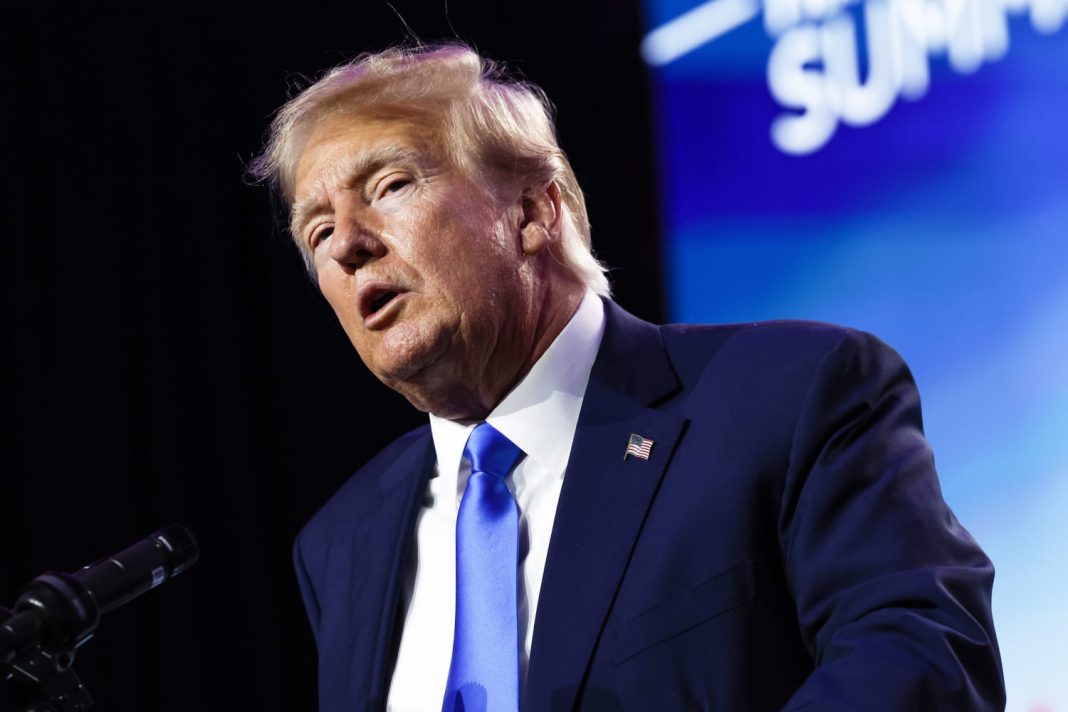Former President Donald Trump has expressed strong disapproval of President Joe Biden’s stance on the potential withholding of military aid to Israel. This critique comes in light of Biden’s concerns over Israel’s military actions in Gaza, particularly in the strategic area of Rafah, a noted base for Hamas operations.
President Biden, in a discussion with CNN’s Erin Burnett, highlighted the tragic civilian casualties in Gaza resulting from military operations, underscoring that the 2,000-pound bombs supplied by the U.S. were implicated in these incidents. Despite Israel’s assurances of targeting only combatants and issuing prior warnings to civilians, Biden remained firm on his conditional aid stance. He specifically warned, “If they go into Rafah — they haven’t gone into Rafah yet — if they go into Rafah, I’m not supplying the weapons that have been used historically to deal with Rafah, to deal with the cities, that deal with that problem.”
In a fiery response on Truth Social, Trump lambasted Biden, labeling him “Crooked Joe Biden” and accusing him of siding with terrorist elements by threatening to cut off critical military support as Israel confronts Hamas in Gaza. Trump argued that such a move by Biden reflects a broader pattern of alignment with extremist groups, drawing parallels with domestic issues such as the radical movements influencing American college campuses, allegedly backed by Biden’s donors.
Trump, who brokered the historic Abraham Accords during his presidency—a significant peace achievement in the Middle East—warned that Biden’s policies might lead the world closer to a global conflict. He suggested that the conflicts in Israel and Ukraine, currently escalating under Biden’s watch, would not have erupted had he been in office. Asserting a policy of “PEACE THROUGH STRENGTH,” Trump hinted at a potential return to leadership, aiming to reinstate his approach to international diplomacy and national security.
This ongoing debate underscores a critical juncture in U.S.-Israel relations, where strategic decisions on military aid intertwine with broader international peace efforts and the contentious political landscape back in the U.S.

